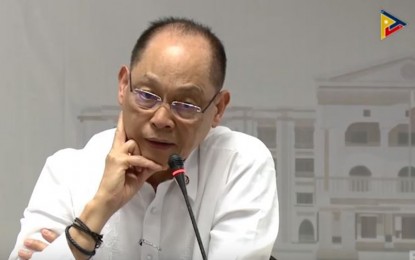
Bangko Sentral ng Pilipinas Governor Benjamin Diokno
MANILA – The economic impact of the coronavirus disease 2019 (Covid-19) pandemic is projected to be greater than expected, hence, the need for the gradual re-opening of the economy to prevent it from further contraction, Bangko Sentral ng Pilipinas (BSP) Governor Benjamin Diokno said.
“We fully recognize that challenges are out there today but we also cannot stay idle and allow the economy to collapse. The prudent approach is a calibrated opening of the economy,” Diokno said in a virtual briefing Tuesday.
The BSP continues to forecast a U-shaped recovery for the domestic economy.
In the first quarter of the year, the domestic economy contracted, as measured by gross domestic product (GDP), by 0.2 percent, the first negative output since the last quarter of 1998.
From the original 6.5 percent to 7.5 percent growth target for this year, economic managers have revised their target to a 2 percent to 3.4 percent contraction due to the expected impact of the pandemic.
Diokno said the second-quarter output is expected to be in a deeper contraction because it was when the enhanced community quarantine was implemented.
Economic managers, however, project a recovery in the latter part of the year and a growth rebound of about 8 percent to 9 percent for 2021.
In the same briefing, Philippine Deposit Insurance Corp. (PDIC) president Roberto Tan said that despite the challenges and negative economic impact of the pandemic, the Financial Stability Coordination Council (FSCC), which is composed of the BSP, PDIC, the Securities and Exchange Commission, and the Department of Finance, “wants to be sure that the Council is an enabler of the recovery.”
Thus, the implementation of several measures to ensure, among others, that liquidity is available for healthy economic activities.
“There should be enough liquidity in the system to address uncertainties that may be priced into market yields. It also means keeping stakeholders updated so that everyone makes informed decision(s),” Tan said.
He also noted that the financial market “is not a separate silo from the rest of the economy.”
“That is why we have been collaborating with our economic agency – NEDA (National Economic and Development Authority) – and in fact, Secretary (Karl Kendrick) Chua attended the FSCC meeting earlier,” he added. (PNA)
